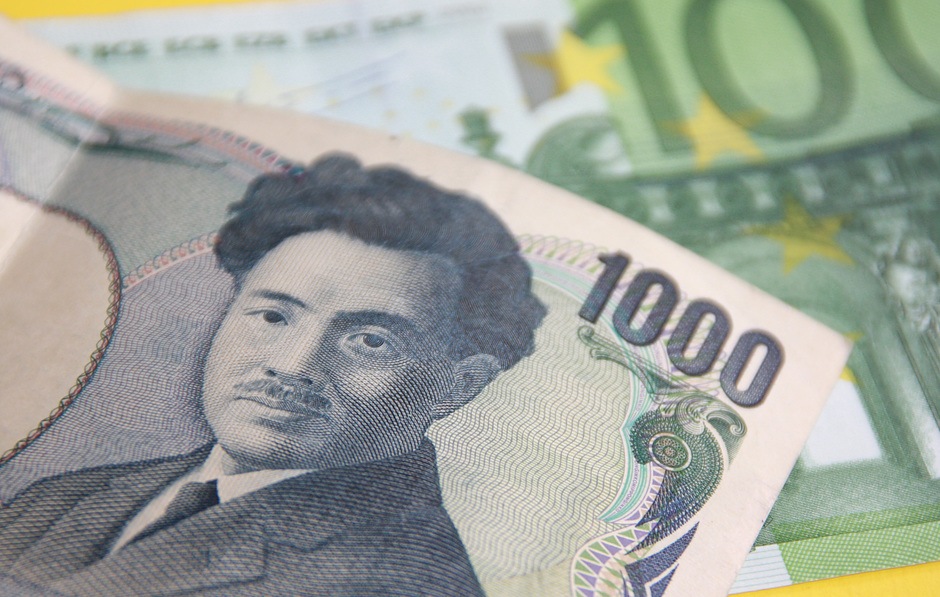EUR/JPY attracts some buyers above 167.00 ahead of German/Eurozone GDP data
- EUR/JPY gains traction around 167.20 in Tuesday’s early European session.
- The advanced Gross Domestic Product (GDP) from Eurozone/Germany will be closely watched later on Tuesday.
- The BoJ is anticipated to raise the interest rate by 10 bps at its upcoming meeting on Wednesday.

The EUR/JPY cross recovers some lost ground near 167.20 during the early European session on Tuesday. The Japanese Yen (JPY) extends its decline for the second consecutive day, which provides some support to the cross. Traders will monitor the release of Gross Domestic Product (GDP) for the second quarter (Q2) from the Eurozone and Germany on Tuesday. On Wednesday, all eyes will be on the Bank of Japan’s (BoJ) policy meeting.
The weaker German IFO survey results and softer economic data from the Eurozone last week fuelled speculation of another rate cut by the European Central Bank (ECB). ECB President Christine Lagarde highlighted during its latest press conference that the central bank will maintain a data-dependent approach, with September's rate cut still undecided.
Traders will take more cues from the GDP growth numbers later in the day, which might deliver crucial information for the ECB as officials look for signals on whether to resume interest-rate cuts in September. The German economy is estimated to grow 0.1% QoQ in Q2, while the Eurozone economy is projected to expand 0.2% QoQ in the same reporting period. In the case of the stronger-than-expected readings, this could lift the shared currency against the JPY.
On the other hand, the growing speculation that the BoJ would hike the rate on Wednesday might boost the JPY and cap the upside for the cross. A Reuters poll of economists expects the Japanese central bank to raise rates by 10 basis points (bps) to 0.1% at its upcoming July meeting.
Elsewhere, data released by the Statistics Bureau of Japan showed that the country's Unemployment Rate fell to 2.5% in June from 2.6% in May. This figure registered the first improvement in five months and came in above the market consensus of 2.6%.
Euro FAQs
The Euro is the currency for the 20 European Union countries that belong to the Eurozone. It is the second most heavily traded currency in the world behind the US Dollar. In 2022, it accounted for 31% of all foreign exchange transactions, with an average daily turnover of over $2.2 trillion a day. EUR/USD is the most heavily traded currency pair in the world, accounting for an estimated 30% off all transactions, followed by EUR/JPY (4%), EUR/GBP (3%) and EUR/AUD (2%).
The European Central Bank (ECB) in Frankfurt, Germany, is the reserve bank for the Eurozone. The ECB sets interest rates and manages monetary policy. The ECB’s primary mandate is to maintain price stability, which means either controlling inflation or stimulating growth. Its primary tool is the raising or lowering of interest rates. Relatively high interest rates – or the expectation of higher rates – will usually benefit the Euro and vice versa. The ECB Governing Council makes monetary policy decisions at meetings held eight times a year. Decisions are made by heads of the Eurozone national banks and six permanent members, including the President of the ECB, Christine Lagarde.
Eurozone inflation data, measured by the Harmonized Index of Consumer Prices (HICP), is an important econometric for the Euro. If inflation rises more than expected, especially if above the ECB’s 2% target, it obliges the ECB to raise interest rates to bring it back under control. Relatively high interest rates compared to its counterparts will usually benefit the Euro, as it makes the region more attractive as a place for global investors to park their money.
Data releases gauge the health of the economy and can impact on the Euro. Indicators such as GDP, Manufacturing and Services PMIs, employment, and consumer sentiment surveys can all influence the direction of the single currency. A strong economy is good for the Euro. Not only does it attract more foreign investment but it may encourage the ECB to put up interest rates, which will directly strengthen the Euro. Otherwise, if economic data is weak, the Euro is likely to fall. Economic data for the four largest economies in the euro area (Germany, France, Italy and Spain) are especially significant, as they account for 75% of the Eurozone’s economy.
Another significant data release for the Euro is the Trade Balance. This indicator measures the difference between what a country earns from its exports and what it spends on imports over a given period. If a country produces highly sought after exports then its currency will gain in value purely from the extra demand created from foreign buyers seeking to purchase these goods. Therefore, a positive net Trade Balance strengthens a currency and vice versa for a negative balance.
Author

Lallalit Srijandorn
FXStreet
Lallalit Srijandorn is a Parisian at heart. She has lived in France since 2019 and now becomes a digital entrepreneur based in Paris and Bangkok.

















